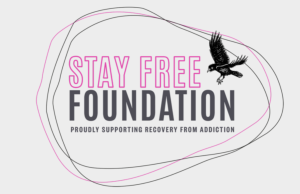The California Attorney General’s Office filed another lawsuit against a charity that officials claim has overvalued donated pharmaceuticals.
In a complaint filed Wednesday in California Superior Court of Sonoma County, Attorney General Xavier Becerra claimed that Santa Rosa-based Aid For Starving Children made misrepresentations in its charitable solicitations and in reports filed with his office. It is also alleged that directors breached their fiduciary duty.
Listed as defendants are the charity’s directors: Chairman Dr. Monte Wilson of Georgia, Joseph Spiccia of Georgia, Warren Hays of Sonoma County, secretary/treasurer Jeffrey Baughman of Ohio, and Chief Financial Officer Wendy Swezy of Sonoma County. Also named as defendants are Lane Phillips and Paul Kelley. The lawsuit notes that Wilson also has a consulting contract with Aid for Starving Children, and Spiccia “had, and may continue to have,” a mail order contract with the charity.
Wilson has served as director since at least 2012 and is listed as president, at an average 10 hours per week and reportable compensation of $30,000, according to the organization’s Internal Revenue Service (IRS) Form 990 for the year ending April 2018. On Schedule L, “Transactions with Interested Persons,” indicates Wilson was compensated $30,000 for “professional fees for services.” Swezy is listed at an average 20 hours per week, with compensation of $29,578, in the position since at least May 2017. Spiccia and Phillips had served on the board since at least 2012 though May 2017 while Baughman and Hays have served since 2012 to the present, according to the suit. Kelley has been on the board since at least May 2017.
Aid for Starving Children was founded in 1981 as The American/African Education Foundation before changing its name in 1989 to American/African Self-Help Foundation, and again in 1999 to African American Self-Help Foundation. The charity took its current name in 2011, according to the court filing.
The charity reported total revenue of $14.4 million, with $12.2 million of that in the form for donated drugs and medical supplies. The lawsuit alleges that Aid for Starving Children used donations of commonly prescribed drugs in the United States unrelated to hungry children, including drugs to treat high cholesterol and post-menopausal women, to boost its revenue significantly. Donated pharmaceuticals that are restricted for use overseas can be valued based on U.S. prices, according to Generally Accepted Accounting Principles (GAAP), an issue that’s come up in the nonprofit sector over the years.
Aid for Starving Children claimed approximately $105 million in revenue between May 2011 and April 2018, with roughly $97.4 million (93 percent) of that in reported value of Gifts In Kind (GIK), according to the lawsuit. Of the remaining $7.4 million in cash revenue, the charity paid $6.2 million in salaries, consulting contracts and fundraising expenses, the lawsuit stated, leaving $1.2 million for programs. The $97 million in GIK “consists almost exclusively of purported donations of pharmaceuticals it received from third parties” which the organization then distributed outside the United States.
As part of its GIK program, Aid for Starving Children does not receive drug shipments directly from pharmaceutical manufacturers, according to the suit. “Drugs are generally ‘donated’” to the charity by another nonprofit, without “any documentation to establish how the donor nonprofit came into possession of the drugs, or whether that donor had proper ownership of the drugs before they were ‘donated.’”
Aid for Starving Children worked with Charity Services International (CSI). The now-defunct Fort Mill, S.C.-based for-profit company would locate a shipment of donated goods, match it with a client charity, then ship them overseas in their client’s name, in exchange for a “procurement fee.”
CSI has been mentioned in previous GIK lawsuits and settlements but not named as a defendant, just as in this case, including the historic Cancer Fund of America in 2015 and a $25 million settlement with the New York Attorney General in 2014 involving a charity called Disabled Veterans National Foundation. An undated message on its website indicates that it closed: “After nearly a decade of providing dedicated logistics to the non-profit sector, Charity Services International is shutting its doors. To all of our clients, past and present, thank you for your custom. It was a pleasure to serve you and we wish you all the best for the future.”
Aid for Starving Children was alerted in March 2012 by the IRS that its GIK program had “certain deficiencies” as far back as 2006 and 2007 but records don’t demonstrate that it followed recommended actions, according to the lawsuit. World Help, a charity which revised its finances after realizing GIK overvaluations, donated drugs to the organization in 2013 but informed Aid for Starving Children that it could not document proper ownership of shipments.
Without some of the questionable GIK drug donations, the lawsuit claims that the charity’s fundraising ratios over the past several years would be more like 2 to 6 percent, instead of the 25 to 65 percent it boasted in Combined Federal Campaign (CFC) materials. The AG’s lawsuit also includes examples of what it calls misleading mail solicitations.
The California Attorney General has been active when it comes to charity GIK programs. In January, Becerra announced a $410,000 settlement with Giving Children Hope over misleading reports involving GIK valuations and three other charities have defended cease-and-desist orders over their valuations for more than a year.
Becerra recently sponsored legislation, introduced by Assemblywoman Monique Limón, that would require charities operating in California to consider donor restrictions when valuing GIK, such as pharmaceuticals restricted for use overseas that would be valued as overseas prices and not U.S. prices. The measure, A.B. 1181, passed the Assembly and was assigned to the Senate Judiciary Committee.








